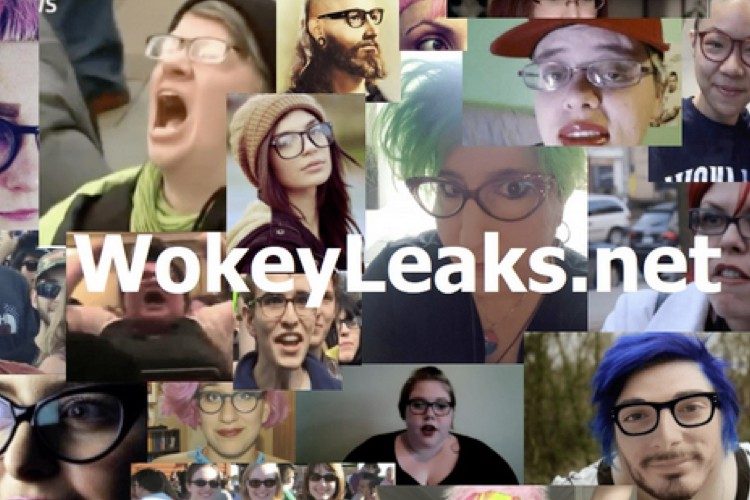
Move over, Wikileaks. There’s a new leaker in town. Only this one, instead of revealing government crimes, promises to expose the hypocrisy of Hollywood social-justice warriors (SJWs) — hence its name: Wokeyleaks.
Published by the Spectator, Wokeyleaks is “a regular column by an anonymous whistleblower operating deep within heart of the Social Justice Movement that is the entertainment industry,” but it also offers an outlet to “any other sources who wish to divulge classified information (and hilarious anecdotes) about woke culture without fear of getting canceled.”
The anonymous whistleblower, who goes by the pen name They/Them, recalls that he didn’t become disillusioned with his SJW pals overnight but, rather, over a period of time as various incidents revealed their hypocrisy to him:
It was when a friend told me that ‘people are concerned about your use of POC [person of color] hand emojis on Instagram.’ Apparently, it’s ‘the equivalent of blackface’ (it’s really not). It was after a star-studded fundraising dinner when I watched a group of activists so engrossed in their cokey soliloquies on the refugee crisis that they left their guest — a Libyan refugee — alone outside an expensive private club unable to get in. It was witnessing the cowardice of an entire social group who completely abandoned a close friend when he became the subject of a #MeToo allegation that they all knew to be bogus. They were so afraid of being on the wrong side of a trendy cause that they all watched in silence as he was mauled by social media mobs and lost his career.
In They/Them’s experience, being an SJW is not really about helping to right historical injustices but about boosting one’s Q-Rating. “In my community of social justice warrior friends,” he says, “popularity (measured by social media followers) is everything.” The people at the top of the SJW movement “have benefited from structural inequalities but have decided to adopt woke principles because it is fashionable.”
Social media is a huge part of the problem. “Because of social media, never before have so many people been famous,” pens They/Them. These people, whom he dubs the “fameoisie,” are obsessed with gaining social-media followers, and one does not amass a large following by going against the grain. (Those who do amass large followings by expressing non-woke opinions often find themselves de-platformed.)
“The character trait that typically accompanies fame,” writes They/Them, “is extreme narcissism.” He recounts an incident backstage at a Bernie Sanders rally in which all his acquaintances “chatted to each other distractedly, glancing every few seconds at their phones or over each other’s shoulders for someone more famous to talk to before going on stage to passionately expostulate on the evils of inequality.”
In short, whatever (debatable) virtues the SJW movement had at its inception have long since given way to being woke for woke’s — and wealth’s — sake. “Social justice,” observes They/Them, “has become a product of social media, which itself exists not to make the world more equal but to make a small number of people in Silicon Valley excessively rich.” Moreover,
We are so trapped within the algorithm that we’re blind to the fact that social justice is no longer a political movement but a branding exercise. We are not activists and revolutionaries but consumers, liking and sharing videos and memes about democracy and equality on phones built by serfs in faraway fiefdoms. This is why the social justice movement has been so rapidly and seamlessly adopted by corporate America. It’s all PR with no action. When you walk into the lobby of Netflix’s headquarters in LA, you are greeted by a huge megaphone prop with the words ‘Stay Woke’ spray painted across it — this from a company that edits its content at the request of the Saudi Arabian regime.
They/Them isn’t just writing to dish dirt on his erstwhile comrades, though. He hopes that unburdening his soul about the hypocrisy of the SJW movement will encourage other wokesters with misgivings to break their own silence. “You’re scared of the online abuse, you’re scared of work mysteriously drying up if you have the wrong opinions, but above … all, you are scared of being unpopular,” he tells them. “Well, now you have Wokeyleaks.”



